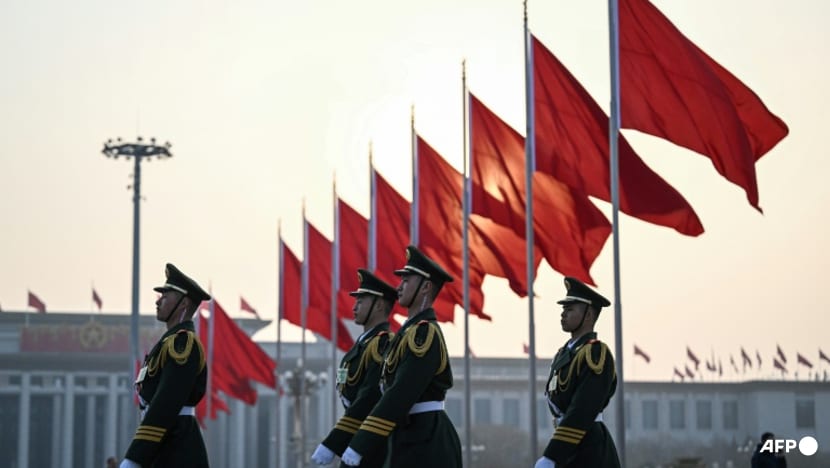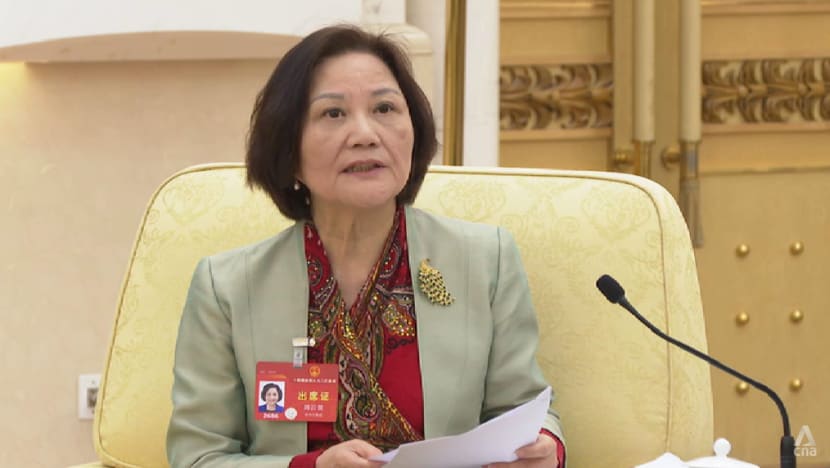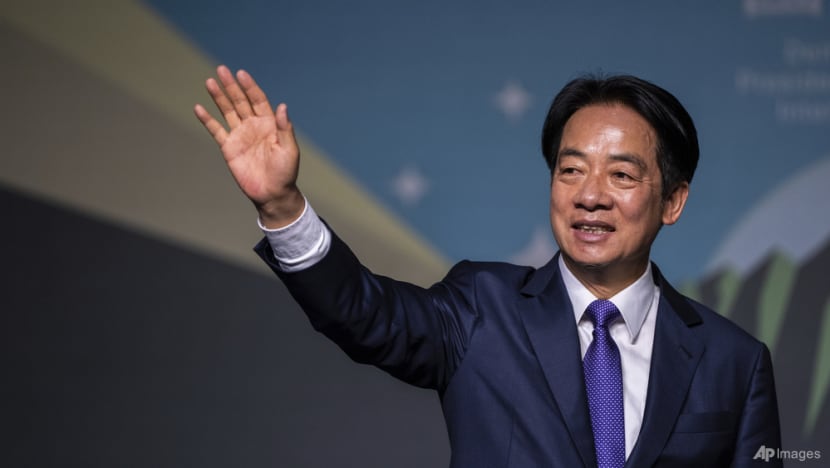China-appointed Taiwan representatives take it upon themselves to promote ‘greater integration’
These deputies, whom China said represent self-ruled Taiwan, have no official standing in the island.

BEIJING: Deputies whom China said represent self-ruled Taiwan are calling for a patriotic education law, as well as a deeper understanding of Chinese history and culture.
The group has no official standing in Taiwan.
Yet these Chinese-appointed deputies, who are based in China and have ancestry links to Taiwan, have taken it upon themselves to promote reunification between both sides.
PROMOTING REUNIFICATION
The Taiwan issue has been in the spotlight at China’s “two sessions” meetings this year, on the back of the island's presidential polls in January and amid simmering cross-strait challenges.
The “two sessions” are the concurrent annual meetings of China’s legislature, the National People's Congress (NPC), and its political advisory body, the Chinese People’s Political Consultative Conference.
“I feel very distressed that the ‘de-Sinicisation’ education in Taiwan for young people will add hundreds of thousands of new voters every year who do not recognise themselves as Chinese,” said NPC’s Taiwan delegation deputy Chen Yun Ying.
“In every Taiwan election, we go through politicking, and that deepens the brainwashing that we are not Chinese. In fact, for our Taiwan compatriots, it is a tragedy not to identify themselves as Chinese.”
Top on the agenda at the NPC's annual session was the promotion of cross-strait cultural and talent exchange, especially among youth.
This is part of the integration plans that China is determined to see through, said observers.
Last year, for instance, the State Council released a development blueprint for Fujian province, making it easier for Taiwanese to buy a house and settle there.

The first Taiwan delegation of the NPC was formed back in 1974.
Officials said its members have since made significant contributions toward the reunification cause, including the idea of gifting giant pandas to Taiwan.
“First, we must implement the policies and measures that have been introduced, for the equal treatment of Taiwan compatriots and Taiwan enterprises, and improve the well-being of Taiwan compatriots,” said NPC’s Taiwan delegation deputy Chen Yong Dong.
“At the same time, we will also formulate and introduce more policies to benefit Taiwan in an orderly manner in light of cross-strait developments and the ground situation of Fujian and Taiwan.”

DIFFICULT FOR CHINA “TO MOVE THE NEEDLE”
Meanwhile, Taiwan elected Democratic Progressive Party's (DPP) Dr William Lai as its president in January, a figure that Beijing considers as separatist.
“If you look at what Taiwanese voters care about, they care about having their political system, and there's very little trust that the PRC (People's Republic of China) would either improve their current situation, or be able to make any credible promises,” said Associate Professor Chong Ja Ian of the National University of Singapore’s Department of Political Science.
“(For) the DPP side, they are not talking about moving towards de facto independence. They're talking about maintaining the status quo, and that's reflective of the sentiment in Taiwan. There's very little desire right now to be provocative. But there's also even less desire to come under Beijing’s control.”
It is tough for China “to move the needle in a direction that they find more friendly”, he added. “I think they're finding a degree of frustration.”
Every year, the government work report, a hallmark of the two sessions, is scrutinised for its tone on Taiwan issues.
This year, Chinese Premier Li Qiang asserted that China is against “separatist activities” and external interference that promote Taiwan independence.
China has repeatedly warned the United States that Taiwan is a red line that should not be crossed.
It considers Taiwan an inalienable part of Chinese territory and believes that reunification is inevitable.


















